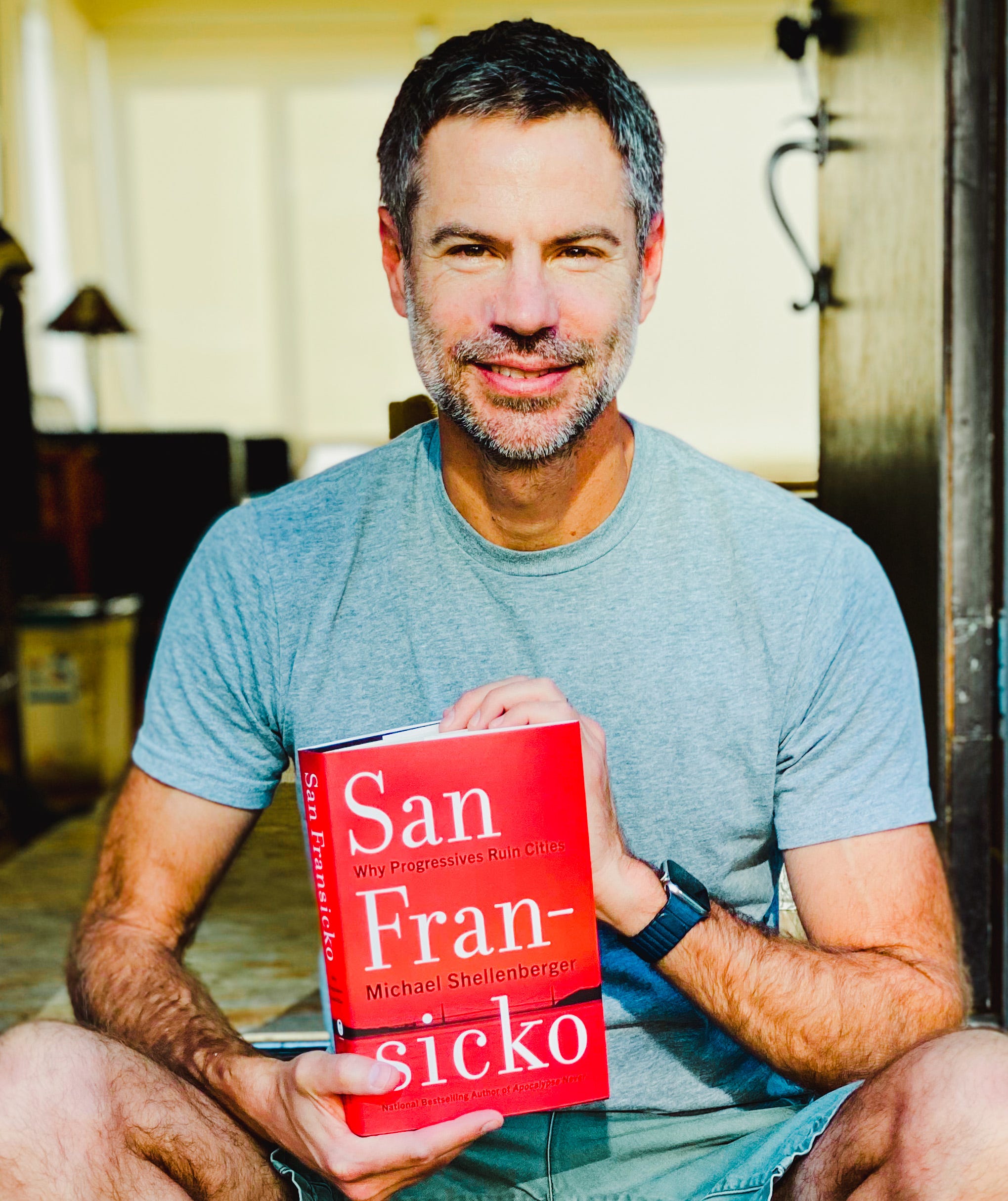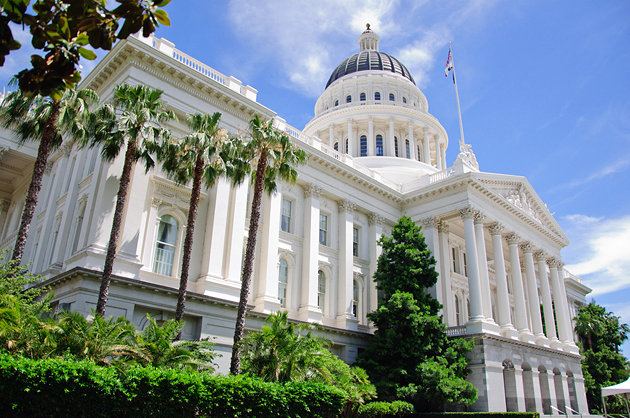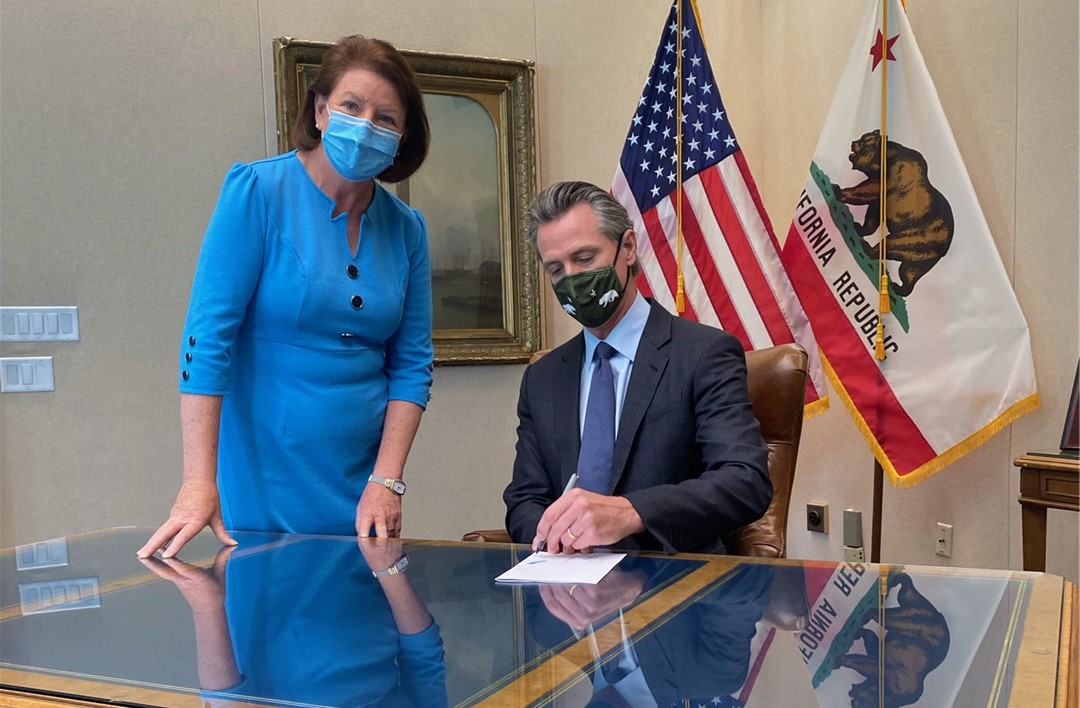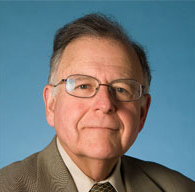
Tonight on State of the Bay at 6pm PT, we’ll learn more about San Francisco’s proposed vacancy tax on empty residential units that lawmakers and advocates hope will put more housing stock into the market. Joining us will be Lauren Hepler, housing reporter for the San Francisco Chronicle.
Then we will talk to self-professed comedy nerds and stand-up comedians Nina G and OJ Patterson, co-author of Bay Area Standup: A Humorous History. Did you know that Phyllis Diller, Mort Sahl and Father Guido Sarducci all got their start in the Bay Area?
Finally, just in time for Valentine’s Day, we’ll hear from Lucie Ebernova, the Dating Coach, who has ideas of how to navigate the wild world of meeting your true love.
What would you like to ask our guests? Post a comment here, tweet us @StateofBay, send an email to stateofthebay@kalw.org or leave a voicemail at (415) 580-0718.
Tune in tonight at 6pm PT on KALW 91.7 FM in the San Francisco Bay Area or stream live. You can also call 866-798-TALK with questions during the show.

It’s a double-shot of shows on KALW 91.7 FM today, my last two of the year. First, this morning on Your Call’s One Planet Series at 10am PT, we’ll discuss how climate science is being politicized in schools with investigative journalist Katie Worth, author of the riveting new book, Miseducation: How Climate Change Is Taught in America.
In the second half of the show, we’ll cover the mental health impacts of air pollution with reporter Kristina Marusic.
Then tonight at 6pm PT, I’ll be co-hosting State of the Bay to assess recent decisions rejecting or delaying housing projects by the San Francisco Board of Supervisors. UC Davis Professor of Law Chris Elmendorf will help us understand the statewide legal implications of these anti-housing decisions, in particular the recent delay of a 500-unit housing development near BART.
Then we’ll discuss the state of the Bay Area’s “slow streets” movement, which close streets to most traffic for improved pedestrian and bike safety. What do you think about these measures? Ask our guests Eillie Anzilotti of the SFMTA and community planner Leah Chambers.
Finally, you’ll hear my interview with with Phil Ginsburg, General Manager of the San Francisco Recreation and Parks Department, who will discuss some of the holiday festivities available in the city’s public spaces.
Tune in at 91.7 FM in the San Francisco Bay Area or stream live at 10am PT for Your Call and then again at 6pm PT for State of the Bay. What comments or questions do you have for these guests? Call 866-798-TALK to join the conversation!
ABC7 News in Los Angeles explored the history of the now-defunct Los Angeles streetcar system, featuring an interview with yours truly.
The piece from reporter Olivia Smith describes how the Pacific Electric Red and Yellow Car electric trolleys shaped development patterns in L.A. at the turn of the last century. It also debunks the myth that car companies destroyed the system.
The modern Los Angeles rail network is now built on some of the old rail rights-of-way from the system, as I discussed in my 2014 book Railtown.

Tonight on State of the Bay, I’ll chat with Berkeley author and environmental activist Michael Shellenberger about his provocative new book San Fransicko: Why Progressives Ruin Cities. He argues that homelessness and violence in our cities are the direct result of progressive tolerance.
Plus, we will talk to an analyst from the Public Policy Institute of California about the new water emergency declaration in San Francisco and what it means for you.
Finally, we’ll hear filmmaker Debbie Lum discuss her new documentary Try Harder! about San Francisco’s storied Lowell High School.
What would you like to ask our guests? Post a comment here, tweet us @StateofBay, send an email to stateofthebay@kalw.org or leave a voicemail at (415) 580-0718.
Tune in tonight at 6pm PT on KALW 91.7 FM in the San Francisco Bay Area or stream live. You can also call 866-798-TALK with questions during the show!

Earlier this month, Governor Newsom signed two significant housing bills — one to end single-unit zoning in urban areas across California and one to allow local governments to upzone parcels near transit to up to 10 units. These new laws could start to make a dent in the state’s multi-million unit housing shortage. But how much?
First and foremost, SB 9 (Atkins) would allow homeowners to convert their house into a duplex, or split their lot and build two units on each lot, allowing up to four units per original parcel — all with streamlined local approval. In short, it ends single-unit zoning in urbanized and transit-rich areas across the state.
For context, the state has roughly 7.5 million single-unit-zoned parcels, and nearly two-thirds of residential land in the state is reserved exclusively for this type of single-unit zoning.
I recently hosted David Garcia from UC Berkeley’s Terner Center on Housing Innovation on KALW’s Your Call to discuss the bill, and his center found that SB 9 could enable the creation of over 700,000 new homes that would otherwise not be market feasible. Given that some estimates peg the state’s housing shortage at 3.5 million, an additional 700,000 units would be a sizeable contribution.
Yet these changes won’t happen overnight. Property owners would need to decide to convert their homes or split their lots, a process which could take years to unfold statewide. Still, given the history of racial exclusion associated with single-unit zoning, coupled with the need to boost housing anywhere we can, and especially in high-income, transit-rich communities, this bill is a welcome step in the right direction.
The second bill, SB 10 (Wiener), is a voluntary opt-in for local governments wishing to rezone parcels for up to 10 units of housing near transit. It allows them to do so without undergoing environmental review.
This bill is less likely to have a big impact on housing production, simply because many local governments and their homeowner constituents are hostile to new apartment buildings. However, as the state tightens the requirements for local governments to provide housing for residents of all incomes, they may be forced to invoke this provision. And in the meantime, local governments that do want to see more dense development (and have the market conditions to enable it) will be able to utilize this law.
Notably, wealthy anti-development interests are already challenging this bill. The Los Angeles-based AIDS Healthcare Foundation, run by a longtime development opponent with personal beef against the author of SB 9, filed a lawsuit claiming that the new law is unconstitutional, because it allows local governments to override voter-approved initiatives restricting development with a supermajority vote. The nonprofit Planning and Conservation League also opposed the bill on similar grounds.
Given the statewide importance of housing production, this lawsuit is unlikely to succeed. But homeowners from some of the wealthiest communities around the state are also mobilizing to place before the voters a constitutional amendment restricting what state policy makers can do to boost housing over local objections.
The ballot measure is also unlikely to succeed given the pro-housing politics of the electorate (many of whom are renters and housing insecure). But it’s yet another example of wealthy interests fighting to preserve the exclusivity of their neighborhoods and maintain their inflated property values, at the expense of the less fortunate.
In the meantime, the real work to boost housing across the state will continue in the legislature. That means more legislation to allow apartment buildings near transit (particularly in high-income areas), streamlining approvals for infill projects, and reducing the overall cost of housing construction.
But for now, 2021 was definitely a year of progress on the housing front, with much more to be done.

On tonight’s State of the Bay on KALW at 6pm PT, we’ll get an update on a few of the more consequential housing and labor bills crossing Governor Newsom’s desk with Emily Hoeven of CalMatters.
Plus, we’ll talk to Oakland-based activist Michelle MiJung Kim about her new book, The Wake Up: Closing the Gap Between Good Intentions and Real Change.
Finally, we’ll find out where YOU can join a march in support of reproductive rights from Sophia Andary, co-founder of the San Francisco Women’s March.
What would you like to ask our guests? Post a comment here, tweet us @StateofBay, send an email to stateofthebay@kalw.org or leave a voicemail at (415) 580-0718.
Tune in tonight at 6pm PT on KALW 91.7 FM in the San Francisco Bay Area or stream live. You can also call 866-798-TALK with questions during the show!

On tonight’s State of the Bay, we’ll ask: can Oakland keep the A’s? The major league baseball team owners hope to build a stadium on the waterfront, but some local employers worry it would harm the maritime economy at the port of Oakland. And what would happen to the current coliseum site?
Joining us to discuss will be:
- Dave Kaval, President of the Oakland A’s
- Mike Jacob, General Counsel for the Pacific Merchant Shipping Association
- Ray Bobbitt, Founder of the African-American Sports Entertainment Group
With a prerecorded statement by Oakland Councilmember Rebecca Kaplan.
Plus Grace Won talks with Tienlon Ho about her new cookbook, Mr. Jiu’s in Chinatown.
Tune in tonight at 6pm PT on KALW 91.7 FM in the San Francisco Bay Area or stream live.
What would you like to ask our guests? Post a comment, tweet us @StateofBay or send an email or voicemail to StateofBay@gmail.com. You can call 866-798-TALK with questions during the show!

On tonight’s State of the Bay, we’ll talk with District 11 Supervisor Ahsha Safaí about the recent surge of shoplifting in San Francisco.
Then we’ll discuss the pros and cons of efforts to make outdoor dining spaces permanent with John King, Urban Design Critic for the San Francisco Chronicle and Laurie Thomas, Executive Director of the Golden Gate Restaurant Association.
Finally, co-host Joseph Pace talks with Pulitzer Prize-winning author John Branch about his new book, Sidecountry.
Tune in tonight at 6pm PT on KALW 91.7 FM in the San Francisco Bay Area or stream live.
What would you like to ask our guests? Post a comment, tweet us @StateofBay or send an email or voicemail to StateofBay@gmail.com. You can call 866-798-TALK with questions during the show!

On tonight’s State of the Bay, we’ll dive into the push to end single-family zoning restrictions in Berkeley with Vice-Mayor Lori Droste and UC Berkeley’s Stephen Menendian.
We’ll also talk with Magnus Lofstrom of the Public Policy Institute of California about rising crime rates in the Bay Area. And then Grace Won chats with local author Vendela Vida about her new novel, We Run the Tides, which explores the rocky terrain of teenage friendships, particularly among girls.
And as a bonus, I’ll be on Your Call on KALW 91.7 FM at 10am PT discussing electric vehicles and the Biden infrastructure package!
Tune in today at 10am PT for Your Call and at 6pm PT for State of the Bay or stream live, both on KALW 91.7 FM in the San Francisco Bay Area. Call 866-798-TALK with questions during the show!
Dr. Martin Wachs, who passed away Sunday evening, was California’s preeminent transportation scholar. He knew both Northern and Southern California well, having joined UCLA’s urban planning department in 1971 and founded its Institute of Transportation Studies, while also spending a decade at UC Berkeley in the interim, where he chaired that’s schools transportation studies program. Much of our knowledge about the history of the state’s transportation system and our ability to evaluate its efficacy comes from his prolific scholarship and role as a public commenter on major transportation decisions.
But more than that, he was a humble and generous person with boundless curiosity and intellect. I first met him when I was researching the history of the Los Angeles Metro Rail system, back in 2007. His influence on Los Angeles transit debates was all over the archival and media documents I found from the 1970s and 1980s, from his scholarship to his op-eds to his conference appearances. Los Angeles elected leaders took his research seriously, even if they didn’t like his skepticism about rail transit in a city as spread out as Los Angeles.
I had originally approached the book as a rail enthusiast, and when I met him in his then-RAND office a few blocks from my Santa Monica apartment, he seemed aghast that I would set out to write a book that would promote rail. But he nonetheless provided me with contact information for a former student who had researched Metro Rail history, along with a few large binders of research for my files. I thanked him profusely and relied on his research for much of the discussion in the book on L.A.’s rail history. In fact, much of what we know about the demise of the Pacific Electric streetcar system in Southern California and its myth-busting conclusion that it was not a car company conspiracy is due to his groundbreaking research.
When my book Railtown was finally published seven years later in 2014, Marty was invited to co-present with me on its findings at an event at UC Berkeley. Top faculty at the school lined up to greet him, like fans seeking autographs at a celebrity book signing. It was an impressive indication of his impact and role as a longtime mentor and generous colleague to so many of them. He was like a returning rock star in his field.
While I was a bit worried how he would react to the book, his comments that evening were thoughtful and ultimately complimentary. I chronicled them at the time on this blog. They are worth reading for anyone interested in his take on rail. What stood out to me was his comment that the book showed him how little politicians actually heeded the advice of transportation scholars, as they forged a path for rail investments despite the caution of experts. And as a recent member of the high speed rail peer advisory group, he was finding a similar dynamic at play, with politicians making short-sighted decisions on this crucial California infrastructure project that have come back to haunt and potentially torpedo its progress.
After that evening in 2014, we kept in touch, even co-authoring an article series on the pros and cons of rail transit investments. If I ever had any questions or needed advice or resources, Marty would jump at the chance, providing thoughtful responses, lists of resources to review, and people to contact. Hundreds of others could say the same thing — his legions of former students now working on urban planning issues, his colleagues, and countless leaders and readers who have benefited from his scholarship and thinking on these complicated issues. You can read some of their tributes (and find out how to honor his memory) on this UCLA website.
Just a few months ago I contacted him about a new rail transit study we’re conducting at UC Berkeley Law. Typical Marty, he immediately offered to schedule a Zoom with our team, providing invaluable advice. But what I remember now is his initial email back to me, where he reflected on his life during the pandemic times. Like most of us, he was home-bound, and he missed his children and grandkids. But he was enjoying his work (including a manuscript in progress that I hope will be finished somehow) and took solace in his garden.
I pictured him in the warm Southern California sun tending to his plants and wonder now who will care for them with his absence? It’s just a small example of the giant hole his death leaves in our world. But Marty’s amazing legacy — beyond the scholarship and influence on public debates — includes his many former students, colleagues, and friends. He trained and supported so many well, who can do their best now to carry on the work he advanced, on issues that affect so many people’s daily lives.
Rest in peace, Marty, and thank you.



